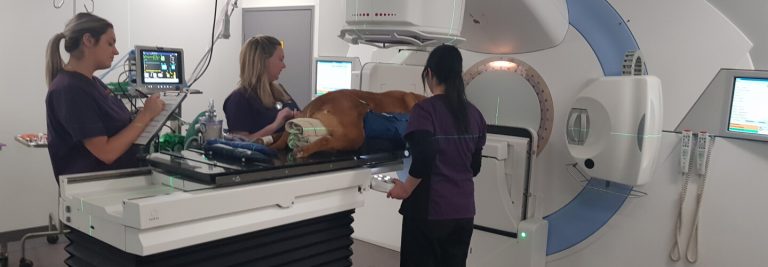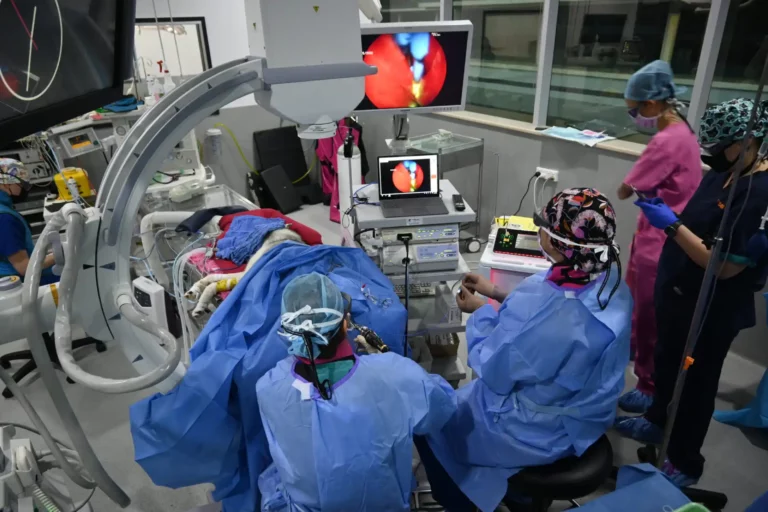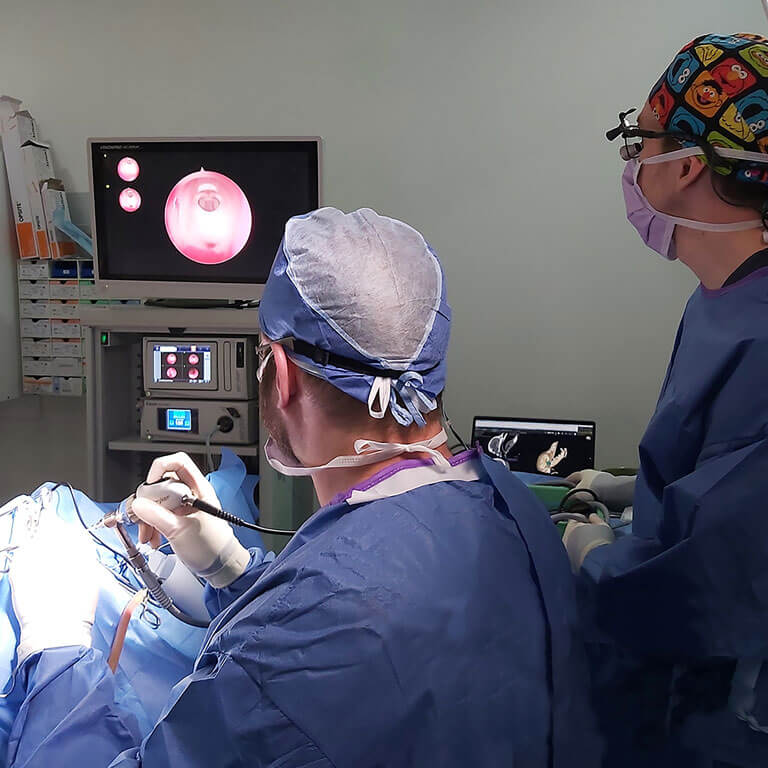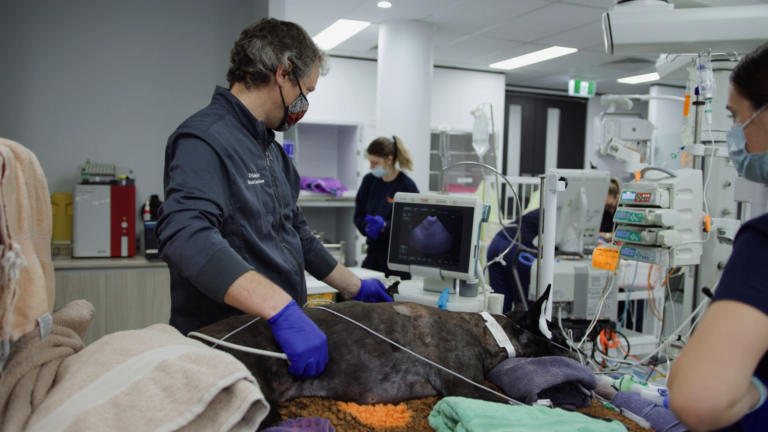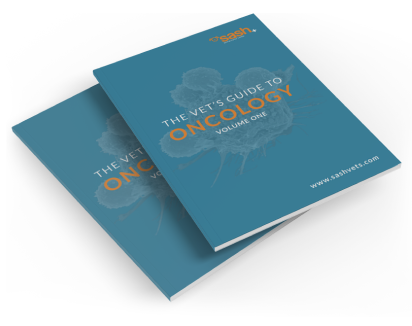Animal eye specialists - Sydney & Central Coast
SASH Ophthalmology highlights:
- The only hospital network in NSW to provide 24/7 on-call veterinary ophthalmology
- One of the few multidisciplinary hospitals with specialist ophthalmology services for best possible patient outcomes
- Latest technologies and training in ophthalmology supported by other specialist departments found in few other hospitals
Your pet can be affected by a wide range of eye diseases; and as in humans, an eye specialist may be called on to help.
Eye diseases in animals can affect the tissues around the eyes, including the eyelids and muscles that move the eye, as well as the eye itself.
Your local veterinarian deals with many eye problems, but the kind of equipment and training needed to diagnose and treat more complex animal eye diseases may mean your pet is referred to a veterinary ophthalmologist.
Our veterinary ophthalmologists will provide your pet with a comprehensive eye exam. They will discuss options with you, and support you as you decide on the best treatment for your pet’s eye care. We will communicate with your vet, and discuss options for ongoing management with them.
Conditions that need Veterinarian Ophthalmologists
SASH Ophthalmology sees a range of eye condition, both common and rare. The following is a list of the more common conditions that will benefit from specialist ophthalmic expertise:
- Cataracts – cloudiness of the eyes
- Distichia – eye lashes positioned too closely to the eye lid margin
- Cherry eye – prolapse or popping out of the third eyelid gland
- Entropion – inward rolling eyelids, causing the eyelashes and hair to contact the surface of the eye
- Glaucoma – high eye pressure
- Chronic dry eye – usually caused from nasolacrimal duct obstruction
- Eye injury or trauma
- Corneal ulcers
- Chronic red eyes – e.g. from allergies
The SASH Ophthalmology difference
The SASH Ophthalmology team of eye specialists are well trained and highly experienced in treating eye problems and performing delicate surgery. As a multidisciplinary hospital, the SASH Ophthalmology department have the added advantage of being able to call upon the expertise of other specialist departments to ensure your pet receives the best care from a team of veterinarians. For the best patient outcome, our ophthalmologists work closely with other departments such as:
- Anaesthesia – Specialist oversight for the safest possible anaesthesia and improved welfare
- Diagnostic Imaging – onsite MRI, CT, and Imaging Specialists to provide real-time diagnostics
- Internal Medicine – a number of complex diseases can cause eye problems (e.g. diabetes). Here, a team-based approach needed
- 24/7 vet care – if your pet requires hospitalisation, you can have peace of mind that they will be well cared for, around the clock by a team of vets and nurses
If your pet has an urgent eye condition that requires immediate help, the SASH Emergency department is open 24/7. After an assessment from one of our Emergency Veterinarians, your pet can be rapidly transferred to the Ophthalmology department for further assessment and treatment.
Emergency Ophthalmology Vet
SASH is proud to be the only hospital network in NSW to offer 24/7 on-call veterinary ophthalmology. If your pet has an urgent eye-related issue, please proceed to any SASH hospital in NSW.
There are many eye emergencies that cannot wait for an appointment, such as acute glaucoma, physical damage/trauma, ulcers, and lacerations. For eye emergencies, an appointment is not necessary, bring your pet to SASH 24/7 Emergency immediately. After an assessment from one of our Emergency Veterinarians, they can call on the help of one of our Ophthalmologists for advice, further assessment, and treatment.
Examples of eye emergencies include :
- Sudden redness and swelling
- Sudden cloudiness
- Sudden pain, squinting, twitching
- Sudden loss of vision of blindness
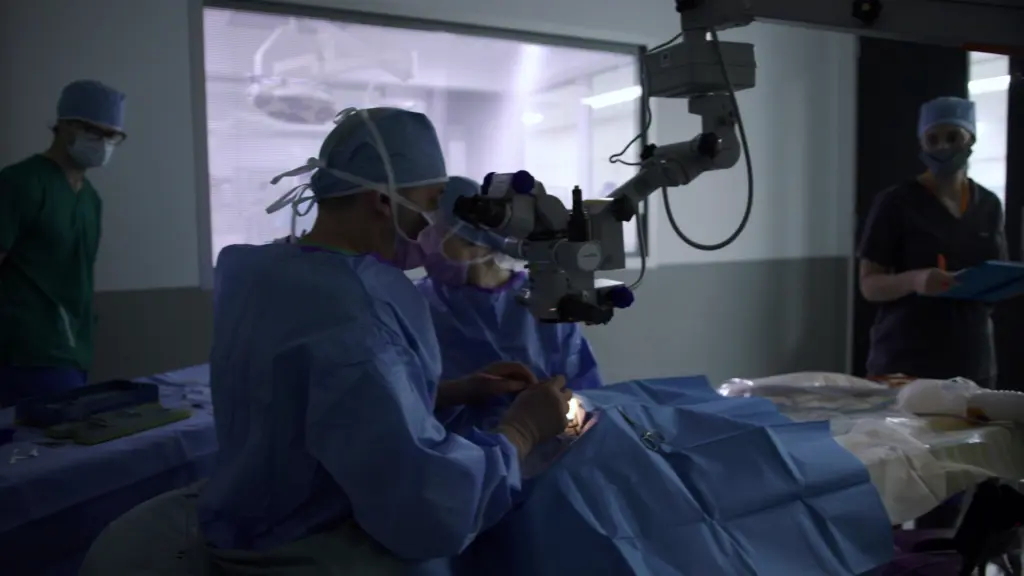
Our dog Bevis is 12 and needed eye surgery to remove a growth from one eyelid and reshape two other to stop irritating his eyes. Dr. Groth at SASH gave careful consideration to the type of anaesthetic they needed because of his age. The ophthalmology staff here friendly but professional and the eye surgery went well. Bevis is much happier. – John
Cataracts in pets
A common cause of blindness is cataracts. Advances in human medicine have meant that there are now treatments available to remove cataracts and this technology is available to treat animals at SASH. Placement of an artificial lens during cataract surgery means that the quality of vision restored is excellent.
Our team of specialist in Veterinary Anaesthetists, assist the Ophthalmology team to provide the best care to our anaesthetised patients. Their expertise is particularly valuable in more complex cases where other diseases need to be considered.
Despite cataract surgery in dogs being offered by very few other vets, it is one of our most commonly performed ophthalmic procedures at SASH. You can feel confident that our ophthalmology specialists are among the best trained and most experienced in the country.
Even if you are unsure about cataract surgery or not considering it at all, it is still important to have your pet seen by an Ophthalmologist. There are a number of severe complications that can arise due to the inflammatory nature of unmanaged cataracts. The conversations within an ophthalmology consultation will ensure you are equipped with the knowledge of all your options going forward, including management without surgery.
Breeder eye certificates
In addition to diagnosing and treating eye diseases, the Ophthalmology service provides screening examination of pets for recognised hereditary eye diseases. This is part of the Australian Canine Eye Scheme (ACES). All animals can be tested under the scheme and will be issued a nationally-recognised certificate.
A common cause of blindness is cataracts. Advances in human medicine have meant that there are now treatments available to remove cataracts and this technology is available to treat animals at SASH. Placement of an artificial lens during cataract surgery means that the quality of vision restored is excellent.
Our team of specialist in Veterinary Anaesthetists, assist the Ophthalmology team to provide the best care to our anaesthetised patients. Their expertise is particularly valuable in more complex cases where other diseases need to be considered.
